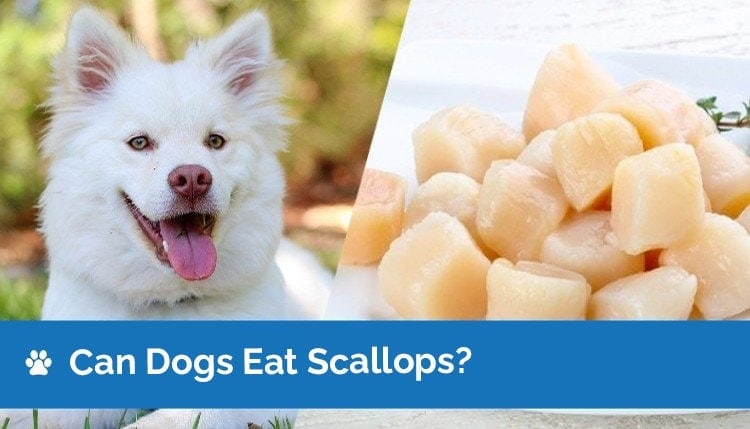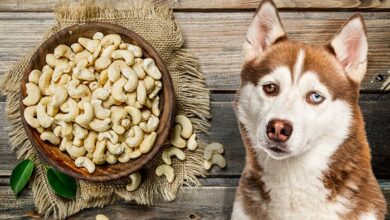Can Dogs Eat Scallops? What Every Dog Owner Needs to Know-2024

Can Dogs Eat Scallops? Yes, cooked scallops are generally safe for dogs when given in moderation. They can be a healthy treat, but it’s important to avoid raw or fried scallops due to the risk of contamination and added fats.
Always ensure that the scallops are plain and unseasoned. This helps prevent any digestive issues and keeps your dog’s snack both safe and nutritious. So, now let’s explore together- can dogs eat scallops?
Nutritional Value of Scallops for Dogs
Can Dogs Eat Scallops? If you’re considering adding scallops to your dog’s diet, understanding their nutritional value can help you make an informed decision. Scallops offer several benefits, but it’s crucial to balance them with other food options to maintain a healthy diet for your dog.
1. High-Quality Protein
- Muscle Support: Scallops provide high-quality protein, which is essential for muscle growth, repair, and overall body maintenance.
- Lean Protein Source: Scallops are low in fat, making them a good lean protein option compared to higher-fat meats.
2. Beneficial Vitamins and Minerals
- Vitamin B12: Essential for nerve function and red blood cell production, vitamin B12 supports overall health.
- Iron: Important for oxygen transport and energy levels, iron helps maintain healthy blood.
- Zinc: Supports immune function and skin health, contributing to a well-rounded diet.
3. Low in Fat
- Healthy Diet: The low fat content in scallops helps prevent excessive calorie intake and supports a balanced diet, which is particularly beneficial for dogs with weight management needs.
By incorporating scallops into your dog’s diet in moderation, you can provide them with valuable nutrients while maintaining their overall health. Just remember to prepare them safely and be mindful of portion sizes to ensure your dog’s diet remains balanced and nutritious.
Risks of Feeding Scallops to Dogs-Can Dogs Eat Scallops?
Can Dogs Eat Scallops? While scallops can offer nutritional benefits for dogs, there are potential risks to consider. Understanding these risks can help you make informed decisions about including scallops in your dog’s diet.
1. High Sodium Content
- Added Salt and Seasonings: Scallops prepared with added salt, seasoning, or sauces can lead to high sodium levels, which might cause sodium toxicity, dehydration, or strain on your dog’s kidneys.
- Health Concerns: Excessive sodium intake can contribute to high blood pressure and other health issues, especially in dogs with preexisting conditions.
2. Risk of Bacterial Infections
- Raw Scallops: Feeding raw scallops can expose your dog to harmful bacteria and parasites, leading to potential gastrointestinal infections or other health problems.
- Safe Preparation: To minimize bacterial risks, ensure scallops are fully cooked before serving.
3. Shellfish Allergies
- Allergic Reactions: Some dogs may be allergic to shellfish, which can cause symptoms such as vomiting, diarrhea, itching, or hives.
- Monitor for Reactions: Introduce scallops cautiously and observe your dog for any signs of an allergic reaction.
Can Dogs Eat Scallops? Ok, By being aware of these risks, you can take steps to ensure that any scallops you offer to your dog are prepared safely and given in moderation. If you notice any adverse reactions or have concerns, consult your veterinarian for personalized advice.
How to Properly Prepare Scallops for Dogs
Can Dogs Eat Scallops? If you decide to include scallops in your dog’s diet, preparing them properly is crucial to ensure safety and maximize their nutritional benefits. Here’s a guide to preparing scallops in a way that’s safe and healthy for your furry friend.
1. Cooking Methods
- Boiling, Baking, or Steaming: Choose cooking methods like boiling, baking, or steaming to prepare scallops. These methods help retain the scallops’ nutritional value without introducing harmful substances.
- Avoid Raw Scallops: Never feed raw scallops, as they can harbor harmful bacteria or parasites that could affect your dog’s health.
2. Avoid Added Ingredients
- No Salt or Spices: Do not add salt, spices, or seasoning to the scallops. These ingredients can lead to sodium overload or digestive issues.
- Skip Butter and Oils: Refrain from using butter or oil, as these add unnecessary fats and calories, which can be unhealthy for your dog.
3. Portion Size
- Chop Into Small Pieces: Cut the cooked scallops into small, bite-sized pieces. This helps prevent choking hazards and makes the scallops easier for your dog to digest.
Can Dogs Eat Scallops? Ok,By following these guidelines, you can safely incorporate scallops into your dog’s diet as an occasional treat. Always monitor your dog for any adverse reactions and consult your vet if you have any concerns.
How Much Scallop Can a Dog Eat?
Can Dogs Eat Scallops? When introducing scallops to your dog’s diet, it’s important to manage portion sizes and frequency. Scallops should be treated as an occasional treat rather than a regular part of your dog’s meals.
1. Serve as an Occasional Treat
- Not a Regular Meal: Scallops should be given only as a special treat, not as a regular component of your dog’s diet. Regularly feeding scallops can lead to an imbalance in their nutrition.
2. Portion Size
- Limit to Small Amounts: Offer a few small pieces of scallops based on your dog’s size and weight. For small dogs, even a small portion is sufficient, while larger dogs can handle a slightly bigger serving.
- Balance with Other Foods: Ensure that scallops do not make up a large portion of your dog’s overall diet. Balance their meals with other nutritious, dog-safe foods.
3. Consult Your Vet
- Seek Professional Advice: If you’re unsure about how much scallop is appropriate for your dog, consult your veterinarian. They can provide guidance tailored to your dog’s specific needs and health conditions.
Can Dogs Eat Scallops? By following these guidelines, you can safely include scallops in your dog’s diet without overdoing it. Always keep an eye on your dog’s health and consult with your vet if you have any questions or concerns.
What to Do If Your Dog Reacts Poorly to Scallops
Can Dogs Eat Scallops? If you decide to feed scallops to your dog, it’s important to be vigilant about how they react to this new treat. While scallops can be a healthy addition in moderation, some dogs might experience adverse reactions.
1. Watch for Allergic Reactions
- Signs of Allergies: Look for symptoms such as itching, swelling, or hives. These can indicate an allergic reaction to the scallops.
- Monitor Behavior: Keep an eye on any changes in your dog’s behavior or physical appearance that could suggest an allergy.
2. Check for Digestive Upset
- Digestive Issues: Watch for signs of digestive upset like diarrhea, gas, or vomiting. These symptoms could indicate that the scallops did not agree with your dog’s stomach.
- Temporary Discomfort: Some digestive issues may be temporary, but it’s important to monitor their severity and duration.
3. Contact Your Veterinarian
- Seek Professional Help: If your dog shows any of the above symptoms or if symptoms persist, contact your veterinarian immediately. They can provide appropriate treatment and advice tailored to your dog’s needs.
- Report Details: When consulting your vet, provide details about the amount of scallops eaten and any symptoms observed to help them diagnose and treat the issue effectively.
Can Dogs Eat Scallops? Being attentive to your dog’s response when trying new foods like scallops ensures their safety and well-being. Always consult your vet if you have concerns about your dog’s health or reactions to new treats.




